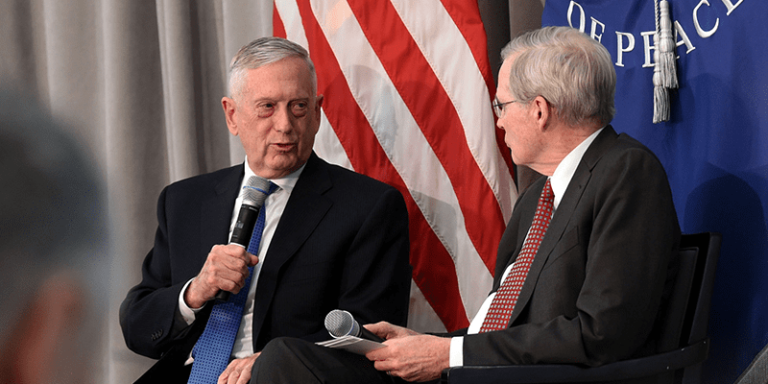
On October 30, 2018, the US Department of State issued a press statement calling on all parties to the Yemen war to “support UN Special Envoy Martin Griffiths in finding a peaceful solution to the conflict in Yemen based on the agreed references.” Attributed to Secretary of State Mike Pompeo, the statement stressed that “The time is now for the cessation of hostilities,” calling on the Houthis to stop launching “missile and UAV strikes” against Saudi and UAE territory. “Subsequently,” Secretary Pompeo demanded that “Coalition air strikes must cease in all populated areas in Yemen.” He urged that the ceasefire must be followed by “consultations under the UN Special Envoy.” It is worth noting that on October 4, Griffiths had declared that the United Nations wished to restart negotiations by November.
Unlike previous US pronouncements about ending the conflict in Yemen, the Pompeo statement included two new elements: first, a specific time schedule for holding such talks, namely the month of November 2018; and second, the suggestion of a third country as a venue for these consultations. The statement issued in Washington did not name the country, leaving pundits to speculate about a potential role for Sweden or Oman—countries whose officials had previously met with Griffiths or other UN officials regarding the Yemen war.
In a rare show of coordination and harmony within the Trump Administration, Secretary of Defense Jim Mattis quickly echoed his colleague from Foggy Bottom by announcing at the US Institute of Peace in Washington, “Thirty days from now we want to see everybody around a peace table based on a ceasefire, based on a pullback from the border and then based on ceasing dropping of bombs that will permit the (UN) special envoy, Martin Griffiths—he’s very good, he knows what he’s doing—to get them together in Sweden and end this war.”
Mattis revealed a sense of urgency not expressed by the State Department by emphasizing, “We’ve got to move toward a peace effort here, and you can’t say we’re going to do it sometime in the future. We need to be doing this in the next 30 days. We’ve admired this problem for long enough down there, and I believe that the Saudis and the Emirates are ready, and in fact had the Houthis not walked out of the last effort that Martin Griffiths had going, we’d probably be on our way there right now.”
Some analysts perceived these statements by senior administration officials as a sign of significant change in US policy toward Yemen. After all, the United States has been a strong supporter—indeed an active participant—in the war in Yemen over the past three years. Despite its occasional grumbling about the overall performance and shifting objectives by the Saudi-led coalition, Washington has been contributing logistical support to the campaign since 2015. It is public knowledge that “the United States has provided limited aid to the operation, conducting aerial refueling for gulf warplanes, sharing intelligence and supplying partner militaries with sophisticated weaponry.”
What motivated the Trump Administration to issue this end-of-conflict statement? Did Washington finally realize the futile nature of this war, widely considered to be causing the world’s worst humanitarian crisis? Is Washington finally concerned about the impact of the military conflict on world public opinion and the damage it has inflicted on both American and Saudi national interests?
The answers to these questions may lie in two recent factors that have generated internal pressure on the administration to issue a revised strategy in Yemen. Although the Pompeo-Mattis statements do not necessarily represent a new strategy in US policy toward the conflict in Yemen, they offer slight revisions to the ongoing strategy to accommodate two variables that might have a negative impact on US-Saudi bilateral relations.
-
- The Congressional Factor. The war in Yemen faces significant criticism and opposition in Congress based on partisan and objective criteria. Progressive Senator Bernie Sanders expressed the strong sentiment among his Democratic and Republican colleagues that, “One place we can start is by ending United States support for the war in Yemen. Not only has this war created a humanitarian disaster in one of the world’s poorest countries, but also American involvement in this war has not been authorized by Congress and is therefore unconstitutional.”
It is widely anticipated that upon returning from its current midterm elections recess, Congress will be taking legislative measures aimed at reducing US involvement in Yemen and ending the conflict altogether. The Trump Administration has been worried about such congressional action, particularly in light of growing Republican support for such a proposal.
- The Khashoggi Factor. The murder of Saudi journalist Jamal Khashoggi on October 2, 2018, has also played a key role in growing congressional opposition to the war in Yemen and to the US administration’s general knee-jerk response to the inconsistent explanation of the Khashoggi killing by Saudi Arabia and its leaders.
The Pompeo and Mattis statements on ending the war in Yemen are not the result of an epiphany on the part of the Trump Administration about this futile and disastrous conflict. Rather, they are more likely a political attempt by Washington to detract from the self-imposed damage of the Khashoggi affair, aiming to minimize its impact and rescue Saudi leaders from the arrogance and foolishness of their kidnapping and murder of Jamal Khashoggi, which they have grudgingly admitted.

